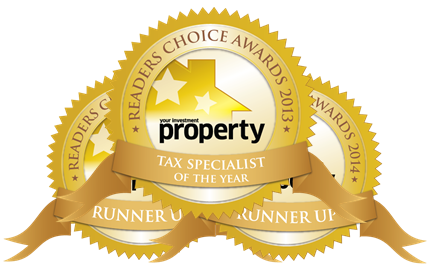By David Shaw. 31/07/2015
It is an exciting time when you are ready to buy a new investment property with so many ideas going through your mind and numerous points to consider in the decision-making process. A brief, non-exhaustive list of such points to consider includes:
- The location (state, suburb) and its future growth prospects;
- House or unit/apartment;
- New land & house package versus an older established property; and
- How much you are willing/can afford to spend on buying the property.
There is one key additional issue you should also consider when deciding which investment property is right for you – the fit of any potential property purchase into your investment portfolio from a tax perspective.
It is sensible to also review and factor your current ‘tax profile’ into your decision making process before proceeding with any new investment property purchase. Consider some common scenarios as follows:
If you are a taxpayer with a taxable income in a higher tax bracket ($80k+), and one of your goals with the new property purchase is to reduce your overall tax liability while still aiming for long-term capital growth, then a newer property would more likely be a better fit in your portfolio from a tax perspective. A new property has several tax benefits, some of which are:
- If you purchase a house and land package with the intention to rent out the dwelling, upon settlement of the land, you can claim eligible holding costs during the construction period in your tax return prior to any rental income being derived (e.g. interest expenses on property loan(s), amortisation of borrowing costs incurred on financing the property purchase, and council/water rates). This will initially help decrease your tax liability (up to 49¢ tax saving on the dollar in the highest tax bracket) during year one/two of ownership depending on the length of construction period; and
- After construction is complete, a new property will have significantly increased depreciation benefits compared to an older established property. Depreciation is a non-cash expense, it helps to (1) reduce your tax liability, while (2) notably decreasing your after-tax costs of holding and maintaining the property during the initial years of ownership when the property is initially negatively-geared.
If a new property does not suit your criteria, for example maybe the location aspect is a non-negotiable and you desire your new investment to be closer to the city where a new property may not be available or simply not affordable then just go in with eyes open and be aware that it will not provide as many upfront taxation benefits as a new property located further out in the suburbs. The upside is that a property in a hotly contested rental market, closer to the city, will hopefully provide you positively-geared passive income sooner.
On that note, if you are a taxpayer who has the cash on hand and joint equity available with a partner in a lower taxable bracket you could consider trying to purchase an older established investment property with the majority ownership % being in the lower taxable income earner’s name. In the first few years of owenership when the property is negatively-geared it will not be as beneficial, but the property could move towards being neutral-to-positively geared at a more accelerated rate than a newer property further out in the suburbs (for example with rental yields in some cities, e.g. Sydney, being at record highs) Structuring the property purchase with this longer-term view can be beneficial when you consider the positive-geared income generated will not be taxed at a high marginal tax rate when it is owned in the lower-income earners name – which will increase your combined available money after-tax.
Also, if you find yourself in the rarer scenario of your taxable income being in a lower taxable-income bracket (maybe your current investment portfolio is largely negatively geared) but you also have the available cash and equity to buy a new investment with minimal financing then an older established investment property could be better suited to you, as any neutral-to-positive geared income generated from the property purchase would be taxed in a lower marginal tax rate. This style of property purchase could make more sense than a new property with lots of depreciation available, as the depreciation there would be wasted and provide reduced -to -no taxation benefits when you are already in a lower taxable income bracket.
Overall it is important to note, each property purchase has to be weighed up on their many merits – just do not forget the tax department wants their say on it as well.
| 2015–16 Individual income tax rates – resident taxpayer | |
| Taxable income | Tax on this income |
| 0 – $18,200 | Nil |
| $18,201 – $37,000 | 19c for each $1 over $18,200 |
| $37,001 – $80,000 | $3,572 plus 32.5c for each $1 over $37,000 |
| $80,001 – $180,000 | $17,547 plus 37c for each $1 over $80,000 |
| $180,001 and over | $54,547 plus 45c for each $1 over $180,000 |
*The advice published on social media mediums by WSC Group is of a general nature and does not constitute specific financial advice. For a detailed financial strategy you should consult with a qualified financial advisor before making any investment decision.

David Shaw is the CEO of WSC Group: Certified Practising Accountants and Business Advisors, and
was voted Property Tax Specialist of the Year in the Your Investment Property 2013 Readers Choice Awards (as well as runner up in 2012 & 2014 ).
Disclaimer: while due care is taken, the viewpoints expressed by contributors/sponsors do not necessarily reflect the opinions of Your Investment Property.
